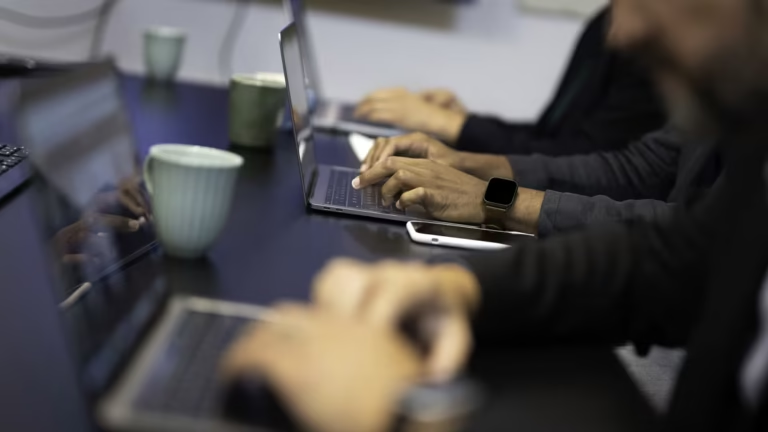AI at Work: Productivity Partner or Job Threat?
As AI reshapes industries and workflows, workers grapple with a mix of excitement, anxiety, and uncertainty about what the future holds.

As AI integration accelerates across industries, workers share their fears, hopes, and firsthand experiences of how artificial intelligence is reshaping the job landscape.
The AI revolution is no longer a distant possibility—it’s here, and it’s already altering the way millions of people work. From office cubicles to factory floors, artificial intelligence is becoming a daily presence. While some see it as a powerful productivity tool, others are beginning to worry that it could soon replace them entirely.
These fears aren’t unfounded. In recent weeks, leading voices in Silicon Valley have made bold—and troubling—predictions. Dario Amodei, CEO of AI powerhouse Anthropic, warned that artificial intelligence could cause up to 20% unemployment in just one to five years. Meanwhile, Amazon CEO Andy Jassy told employees that AI agents are expected to reduce the company’s workforce in the near future.
Such statements have sent ripples of anxiety across the global workforce. For many, the rapid advancement of AI feels more like a race than a revolution—one that they didn’t sign up for and might not win. But for others, AI represents a thrilling frontier, unlocking new opportunities to work smarter, not harder.
The Changing Face of Work
So, is AI actually taking jobs today? The answer depends on whom you ask—and what they do. In some industries, AI has begun to replace repetitive, manual, or administrative tasks. In others, it’s serving as a creative partner or data analyst, amplifying human potential rather than replacing it.
For example, marketers and writers have found that tools like ChatGPT help streamline ideation and content creation. Customer service agents report faster response times and improved ticket resolution with AI chatbots handling the first lines of interaction. Engineers are leveraging AI for code generation, and HR professionals are using it to screen résumés and even assess candidate sentiment.
But that same utility is also part of what makes AI threatening. When software can write code, draft emails, design presentations, and answer customer questions—what’s left for people to do?
A Double-Edged Sword
Some experts argue that these warnings are overblown, even self-serving—marketing hype designed to sell AI products. The promise of massive disruption is, after all, a powerful pitch to investors and enterprise buyers. But others see genuine cause for concern.
Still, the real story lies not just in boardrooms and forecasts—but in the lives of everyday workers. That’s why we want to hear from you.
- Is AI already changing how you do your job?
- Are you more productive because of it—or more anxious?
- Has your role become more strategic or less secure?
- Are you optimistic about AI’s potential, or worried about your future?
Whether you’re working in finance, healthcare, retail, education, tech, or any other sector, your voice matters. Tell us what AI looks like in your daily workflow. Share your thoughts, your concerns, and your hopes for the future.
Submit your story via the form below. We won’t use your name without permission, and we’re happy to discuss anonymity if you’re concerned about speaking openly about your workplace. Your insights will help illuminate how this technology is truly impacting workers around the world—beyond the headlines.
Because at the end of the day, the future of work isn’t just about AI—it’s about people.




















